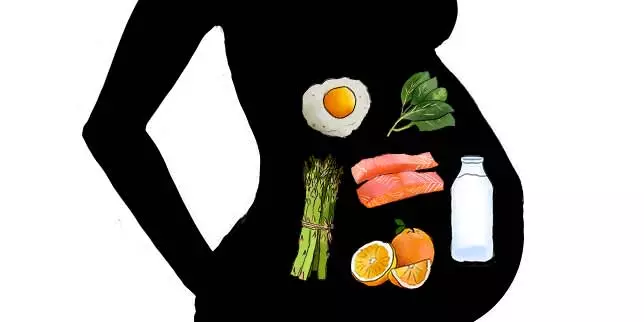Pregnancy is an extraordinary journey that envelops a range of transformations—physically, emotionally, and mentally. While the popular adage “eating for two” might entice expectant mothers to indulge in dessert at every opportunity, the reality is that nutrition during pregnancy is far more nuanced than that. Focusing on a wholesome diet, particularly during the critical first trimester, is essential for both the mother and the developing baby. This article delves into the vital nutrients and dietary practices that establish a solid foundation for a healthy pregnancy.
The first trimester is a pivotal phase of development for the fetus, as critical structures such as the brain and spinal cord form alongside vital organs. Proper nutrition at this point is not merely supportive; it is fundamental. The choices a mother makes regarding her diet directly impact her baby’s growth and well-being. Rather than succumbing to cravings for comfort foods high in sugar and fat, it is crucial to prioritize a balanced intake of nutrients that bolster health and vitality.
Expectant mothers may not require additional calories during the initial trimester, but the mantra of “eating for two” transforms into “nourishing for two.” Instead of large, heavy meals, aim for smaller, nutrient-dense meals spread throughout the day. This approach can help alleviate symptoms like nausea, and it maintains energy levels without overwhelming the digestive system. Focus on packing these meals with wholesome options—think colorful fruits and vegetables, high-quality proteins, and whole grains. Cutting back on processed foods and focusing on fresh ingredients will yield tremendous benefits for both mother and child.
1. Folate: One of the most critical nutrients during the early stages of pregnancy, folate—or folic acid—is essential for the healthy development of the neural tube and can significantly reduce the risk of birth defects. Increasing daily intake to around 800 mcg is recommended, achievable through dark leafy greens, legumes, and fortified cereals.
2. DHA and Omega-3s: Essential fatty acids like DHA, particularly found in fish such as salmon, contribute to the robust development of the fetal brain and nervous system. Aiming for at least 600 mg of DHA each day is beneficial, making foods like flaxseed, chia seeds, and fatty fish a staple in your diet.
3. Iron: As blood volume expands during pregnancy, a heightened intake of iron becomes crucial to preventing anemia, which can lead to complications such as premature birth. An intake of 27-30 mg daily supports not only maternal health but also provides necessary oxygen to the growing fetus.
4. Zinc: Although not often emphasized, zinc plays an integral role in cell division and DNA synthesis. Expectant mothers should ensure they consume adequate zinc—around 11 mg daily—through foods like nuts, dairy, and whole grains to support developmental processes.
5. Vitamins A and D: These fat-soluble vitamins are vital for overall health. Vitamin A, abundant in colorful fruits and vegetables, supports the development of the heart, lungs, and kidneys. Vitamin D, obtained from fortified foods and sunlight, aids in calcium absorption and strengthens the baby’s bones.
Maintaining a conscious approach to eating can positively impact pregnancy. It involves being selective about food choices, considering both quality and safety. Pregnant women should avoid risky food items such as raw or undercooked meats, unpasteurized products, and certain fish known for high mercury levels. Listening to the body’s cues—whether it craves certain foods or reacts poorly to others—is vital in determining what suits individual dietary needs.
While nutritional guidelines provide a sound foundation, personalizing dietary strategies is crucial as every pregnancy is unique. It is advisable for expectant mothers to consult with healthcare providers or registered dietitians to ensure their nutritional needs are met. This dialogue can help address any specific health conditions and offer tailored advice to ensure optimal maternal and fetal health.
The journey through the first trimester sets the stage for the remaining months of pregnancy. By embracing a nutrient-rich, balanced diet and practicing mindful eating, expectant mothers can foster an environment conducive to the healthy growth and development of their baby. This not only ensures the well-being of the child but also equips mothers with the energy and vitality to navigate the challenges of pregnancy. Ultimately, balanced nutrition during this crucial phase becomes a powerful tool in nurturing life.

